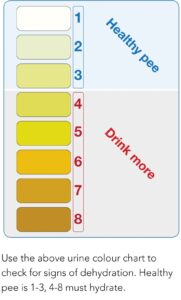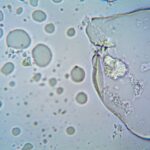How Much Water Should I Drink Per Day? Is 8 Glasses a Fallacy?

Many health experts recommend drinking eight glasses of water per day. But there’s no one rule that fits all when it comes to your required water intake.
How much water you should drink depends on several factors like your health and where you live. Learn how much water is adequate for you and if you are drinking enough water in this article.
Why We Need To Drink Water
Drinking water has numerous health benefits. Here are some of the things water helps your body do:
- It helps in waste removal through perspiration, urination, and bowel movements.
- It helps you maintain a normal body temperature.
- It protects sensitive tissue.
- It lubricates and cushions your joints.
- It aids in digestion, helping your body to absorb the nutrients in your food.
Your body constantly loses water through sweat, urine, and other bodily functions like breathing. Thus, drinking water is the only way to prevent dehydration and help your body function properly.
Note: Water makes up 40 to 70% of your body weight.
How Much Water Should You Drink Daily?
Your adequate daily water intake depends on your birth sex. Males require more water than females to support their higher body mass.
The Center for Disease Control and Prevention (CDC) recommends the following daily fluid intake for healthy adults:
- 15.5 cups (125 ounces or 3.7 liters) a day for men
- 11.5 cups (91 ounces or 2.7 liters) a day for women
This recommendation includes the total fluid intake from all sources, not just water. Remember to include food and other non-water beverages when calculating how much water you drink daily.
Is “Drink 8 Glasses of Water a Day” a Fallacy?
The idea that you should drink eight glasses of water a day is widely accepted as a fact. But it’s not a perfect guideline. Eight 8-ounce glasses of water may be too much water for some people and not enough for others.
How much water you should drink depends on several factors, including:
- How much exercise you do. When you exercise, you sweat, and your body loses its fluids. Thus, you need to replace the lost fluids by drinking water.
It’s extremely difficult to calculate how much fluid you lose during physical activity. However, according to the American Journal of Sports Medicine, the more you exercise, the more fluids you lose. Thus, your fluid requirements increase as you exercise more.
- Your environment. Where you live also impacts your daily water requirements. For instance, people who live in hot climates need to drink more water. That’s because you tend to sweat more if the humidity is high.
You also require more water if you live in a dry region because you are more prone to dehydration.
A 2016 study showed that staying hydrated improved the athletic performance of mountaineers in high altitudes. Thus, your daily water requirements also depend on the altitude of the place you live.
- Your overall health. If you are ill, you might require more water than a healthy person. For example, you will lose water if you have diarrhea or vomiting. Even bladder infections lead to water loss as you tend to urinate more. Thus, you have to consume more water to stay hydrated.
Diabetic people also feel thirsty more often and have a higher fluid requirement than non-diabetics.
- Whether you are pregnant or breastfeeding. Your fluid needs increase when you are pregnant or nursing your child. After all, you are meeting the water requirements of two or more individuals.
- What you eat and drink. If you drink a lot of caffeinated beverages, you’ll have to drink more water as you will lose water through urination.
You also need more water if you consume lots of salty, sugary, and pre-prepared foods.
Alternatively, eating fresh fruits and vegetables keeps you hydrated, reducing your daily water intake requirements. Soup is another excellent food for hydration.
Can Your Daily Fluid Intake Come From Food and Non-Water Beverages?
It’s not just water that contributes to your body’s fluids. Most of the foods and beverages you consume help meet your body’s water requirements.
Many fruits and vegetables are packed with fluids that can help you stay hydrated — like watermelon.
Coconut water is also a very refreshing and hydrating option. The United States Department of Agriculture says that it contains 95% water. Even tea, coffee, and other beverages can hydrate you (though, as these are diuretics, they will also cause you to urinate frequently, leading to fluid loss).
Sodas rarely quench thirst, so you shouldn’t include them when counting your daily water intake. The added sugar in sodas can also lead to other health problems like diabetes.
How To Know If You Are Drinking Enough Water
You will know you are drinking enough water from your thirst levels and urine. Most people who don’t drink enough water will feel thirsty frequently and pass dark-colored urine. Hydrated people will pass light yellow or clear urine.

Source: NHS
You can also check your hydration status by pinching the back of your hand. If you are well hydrated, your skin will bounce back immediately. Your skin will remain in place for longer if you are dehydrated.
You may also be drinking too little water if you notice you get frequent headaches, a dry mouth most of the time, kidney stones, and you feel sluggish.
Caution: Drinking too much water may lead to water intoxication. Water intoxication occurs when there is excess water in your cells. As a result, your cells swell up, which increases your blood pressure. You may also experience confusion and dizziness.
The Bottom Line On Water Intake
The advice “drink eight glasses of water per day” might not ring true for everyone. Your daily fluid requirements depend on several factors like your health, how much you exercise, whether or not you are pregnant or breastfeeding, and your environment.
Make sure you monitor your daily intake of fluids carefully. Drinking too little water can have serious consequences short-term and long-term.
Sources:
- https://www.nhsinform.scot/campaigns/hydration
- https://www.everydayhealth.com/dehydration/hydration-calculator/
- https://www.mayoclinic.org/healthy-lifestyle/nutrition-and-healthy-eating/in-depth/water/art-20044256
- https://www.webmd.com/diet/what-is-too-much-water-intake




